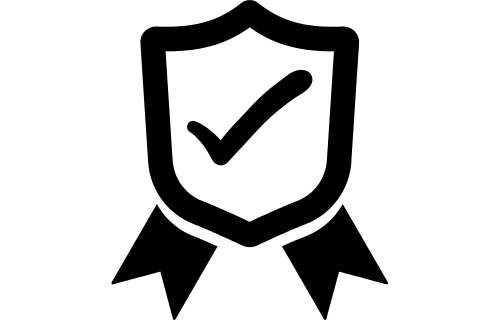What is an annual gas safety check?
Are you using gas appliances in your house? Gas Safe registered engineers can inspect your gas appliances and this will keep your family safe, and it may prolong the life of your appliances.
Gas appliances that are used in rental properties by landlords must be checked annually, and a Landlord Gas Safety Certificate will also be required from a Gas Safe registered heating engineer.
Below is a brief guide on the annual gas safety check, including information about everything from your legal obligations to any associated costs.
A Gas Safe registered engineer will always be able to answer any questions. Certain homeowners may qualify for a free gas safety check through their energy supplier or insurance, so it is important to check eligibility for these services.
What is a gas safety check?

Gas safety checks are designed to check any gas appliances within a property. This includes gas boilers, cookers, and fires. It ensures that they work safely and efficiently. Common checks include:
- Verify that the installation is safe for the intended location
- Check that the appliance is operating at the right pressure
- Ensure that the appliance has adequate airflow and that it is properly burning gas.
- Make sure that chimneys and flues are free of obstructions so they can safely emit gases and fumes from the appliance outside.
- To ensure that safety devices are working properly in line with gas safety regulations test them all.
It is worth noting that there is a difference between boiler service and gas safety check, if you require a landlord boiler service then ensure that this is included.
Importance of Gas Safety Checks
Gas safety checks are crucial to ensure the safe operation of gas appliances and prevent potential hazards. These checks help identify any issues with gas appliances, flues, and pipework, which can lead to carbon monoxide poisoning, gas leaks, and even explosions.
By having regular gas safety checks, you can prevent these risks and maintain a safe and healthy living environment. Additionally, gas safety checks are a legal requirement for landlords, and failure to comply can result in serious consequences, including fines and even prosecution.
Who does not need an annual gas safety check?
You are not required to have an annual check as a homeowner. It is recommended that homeowners have an annual gas safety check. Every gas appliance has the potential to produce carbon monoxide, a deadly poisonous gas.
Most people just have a gas boiler, so an annual gas safety check should be done when you get boiler service every year.
Regular inspections will ensure that your gas appliances work properly and are less likely to pose a safety risk. Regular safety inspections will keep you and your family safe, as well as prolong the life of your gas appliances.
What are your landlord’s gas safety responsibilities
Gas Safety (Installation and Use) Regulations (GSIUR) outline the duties of landlords to ensure that gas appliances, fittings and chimneys work safely and efficiently. Three main legal responsibilities apply to letting property with gas appliances.
1. Gas safety checks
All gas appliances and flues must be subject to an annual inspection. This should always be done by a qualified Gas Safe registered engineer. After this is complete, you will receive a Landlord Gas Safety Record with all details.
Checks can be arranged to be performed anytime between 10-12 months and 12 months from the date of the last check. This will not affect the original expiry date.
You’ll get a new date 12 months after your last check if it is less than 10 or more months. a Gas Safe Registered engineer can help you if you have any questions about your LGSR.
Your tenants don’t own appliances. However, you are responsible for ensuring the safety of connecting flues if they aren’t directly connected to your tenant’s appliance.
2. Landlord gas safety check
After the annual inspection and receipt of your Landlord Gas Safety Record you will need to give a copy of that record to your tenants.
Your current tenants should have a copy of your LGSR within 28 days of the inspection. New tenants will need this at the beginning of their tenancy.
If you rent for less than 28 days, make sure to clearly display a copy your gas safety record in the property. You will need to keep a copy of your gas safety certificates until two additional checks are completed.
3. Maintenance
Gas pipework, chimneys, flues, and appliances must be kept in good condition. To find out the recommended frequency of service, consult the manufacturer’s guidelines for gas appliances.
If you don’t have access to them, we recommend an annual service – unless your Gas Safe registered technician suggests otherwise.
Gas supply pipework check recommendation
The annual gas safety inspection does not cover installation pipework. However, both Gas Safe Register (and the HSE) recommend that you ask your Gas Safe Register registered engineer for a safety test.
- Check for tightness in the entire gas system, including the installation pipework.
- Visually inspect the pipework as far as it is possible
Although there are no requirements to maintain maintenance records, you will need to be able show that you have maintained and repaired pipework, flues, and appliances.
Who can do a gas safety check?
Annual gas safety checks can only be performed by Gas Safe certified engineers. A heating engineer must have completed training to obtain their Gas Safe certification in order to be considered Gas Safe.
It is a good idea for anyone looking to hire a Gas Safe engineer to do a gas safe registry check. To ensure that your heating engineer is licensed to work on gas appliances, please search the Gas Safe Register for their name.
Noting that Gas Safe can be achieved at different levels is also important. Ask your heating engineer for their ID so they can conduct a gas safety certificate inspection. You can verify their qualifications by looking at their ID.
Your heating engineer can perform gas safety checks on all your appliances and will also be able to provide useful tips for tenants or family members.
Regular inspections and safe practices will reduce hazards and help to keep your appliances in good working order.
Frequency of Gas Safety Checks
Gas safety checks should be carried out annually, as required by the Gas Safety (Installation and Use) Regulations 1998. This means that landlords must ensure that all gas appliances, flues, and pipework are checked by a Gas Safe registered engineer every 12 months.
Tenants should also ensure that their own gas appliances are checked annually, and landlords should provide a copy of the gas safety record within 28 days of the check.
Regular gas safety checks can help prevent gas leaks, ensure the safe operation of gas appliances, and prevent carbon monoxide poisoning.
What is the cost of a gas safety check?

The average time to conduct a gas safety check is around one hour. However, the cost of each heating engineer will vary. A quick internet search revealed that quotes ranged from around £30 to the £150 mark. Some companies charge a fixed fee for one appliance.
Additional charges may apply for additional appliances. Certain homeowners may qualify for a free gas safety check through their energy supplier or insurance, so it is important to check eligibility for these services.
The Gas Safe Register does not regulate the cost of landlord gas safety checks. To ensure fair pricing, we recommend that you obtain multiple quotes.
We recommend scheduling your check during summer months as an additional tip as a gas safety check cost less too. Heating engineers are most busy in winter, so it’s best to book your appointment well in advance.
You may be eligible for a discount or package deal if you book in the summer. Heating engineers are more likely need the work. Landlord Gas Safety Certificates only last 12 months. To ensure that you are on the right side, book an inspection well in advance.
Landlord boiler cover allows landlords to save money on gas safety checks each year.
Companies offer a variety of home care and landlord care packages, which include an annual boiler service for no extra charge and a price guarantee. Landlord packages also include your Landlord Gas Safety Record and a boiler safety check.
Consequences of Not Having a Gas Safety Check
Failure to have a gas safety check can have serious consequences, including:
- Carbon monoxide poisoning: This can be fatal, and regular gas safety checks can help prevent it.
- Gas leaks: These can lead to explosions, fires, and other hazards.
- Fines and prosecution: Landlords who fail to comply with gas safety regulations can face serious penalties, including fines and even prosecution.
- Invalid insurance: If a landlord fails to provide a gas safety certificate, their insurance may be invalid, leaving them liable for any damages or injuries.
- Eviction: In extreme cases, failure to comply with gas safety regulations can lead to eviction.
It is essential to take gas safety seriously and ensure that all gas appliances, flues, and pipework are checked annually by a Gas Safe registered engineer.rd packages also include your Landlord Gas Safety Record and a boiler safety check.